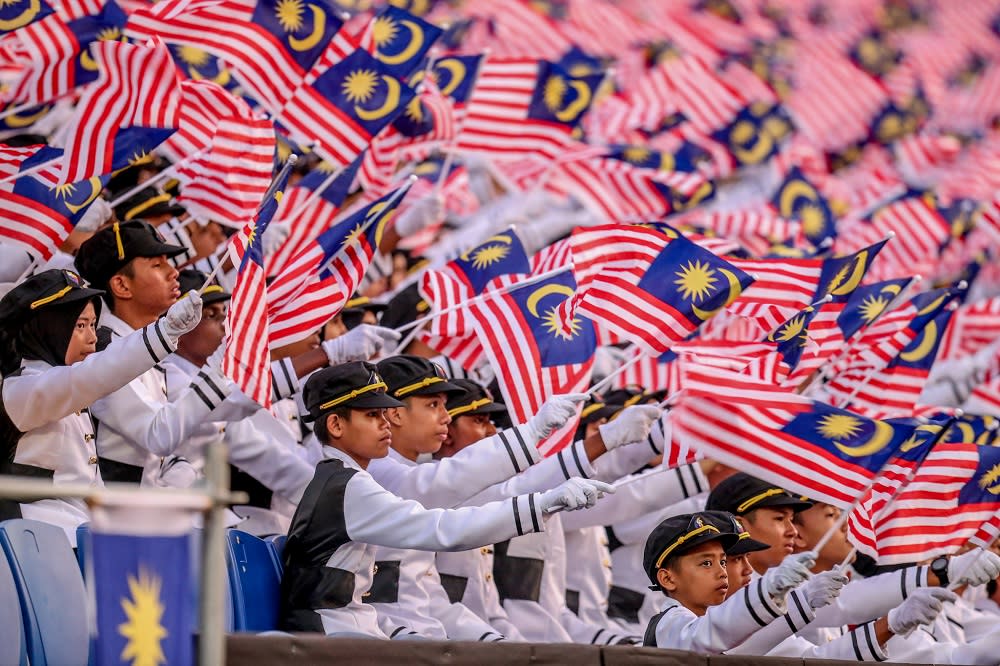Getting Malaysian youths into politics: Pundits suggest starting with political literacy lessons

KUALA LUMPUR, Dec 23 ― Malaysia has taken big democratic strides forward this past one year since the Pakatan Harapan coalition won the general election.
The country elected a 22-year-old independent as MP, saw a 25-year-old appointed minister, changed the laws to allow 18-year-olds the right to vote and contest public office; the Opposition parties are even amending their constitutions to recruit members as young as 16.
Yet political experts believe a more fundamental and monumental task needs to be done first to get more young Malaysians actively participating in governance, and that is to inform them about what politics is and why it is so important.
“There is still a huge gap in knowledge between the youths in advanced countries and our youths here. We need to narrow this gap,” Azmi Hassan from Universiti Teknologi Malaysia told Malay Mail.
He said Malaysian youths today appear more politically active on social media compared to their predecessors, but is concerned they may not be getting sufficient facts to make an informed choice.
“They use social media as their main source of information and these platforms can easily be manipulated by political parties,” he said.
Azmi suggested using schools to train young Malaysians to ask questions and learn how to source for information from verified sources.
“Most of the time they don't check the veracity or truth of a source. They must be educated on how to get the right information,” he stressed.
Teach them democracy
Political scientist Mohd Azizuddin Mohd Sani from Universiti Utara Malaysia said the government needs to think about political education for the young.
While he said there is a possibility that this could result in schools becoming partisan, he suggested rules be set to restrict political parties from entering the grounds.
“I’m not talking about party politics. Instead, teach kids in schools what is democracy and what it’s like [in practice].
“Educate them on how democracy is built, what are its values. Australia does it in schools using toys when kids are at a younger age. They're taught how democracy works, like voting and so on,” Azizuddin said.
A suitable age
Ahmad Fauzi Abdul Hamid from Universiti Sains Malaysia noted a global trend in young world leaders, citing Finland’s Sanna Marin who on December 10 became the world’s youngest prime minister at age 34, and New Zealand Prime Minister Jacinda Ardern who took office at 37 and won international praise for her empathetic response to the Christchurch mosque massacre earlier this year.
He believes Malaysia too could one day have a leader representative of the under-40 age group, but stressed that the foundation must be laid down now.
He said that the “deep state” had ingrained in Malaysian youths the belief that they are powerless to impact governance, resulting in decades of political apathy.
“One of the problems lie with the political culture conditioned by a deep state which has for too long suppressed young voices as immature and ipso facto damaging.
“But we need to start now. Say, one's political career takes 20 years to approach maturation, we need to start now so that we too could one day produce a prime minister who is in his or her mid-30s, or at least more ministers in their 30s,” he said.
MCA recently amended its party constitution to lower its age threshold to 16, after MIC made a similar change. Malay Mail understands Umno and Amanah plan to do the same.
But Ahmad Fauzi thinks 17 is a better age for youths to enter politics.
“I'd go for 17, to correspond with the youths who need to sit for SPM or O-Levels examinations.
“It'll allay fears of parents who might be thinking that their children would neglect their education should they decide to play an active role in politics,” he said.
Awang Azman Awang Pawi from Universiti Malaya lauded the political parties’ initiative to boost their youth representation, but said more must be done to encourage their active participation and in ways that benefit the country.
He suggested that after lowering the age for membership, political parties should next cap the age for their youth wing members to 35 to attract younger Malaysians and to be more progressive.
Apart from Bersatu’s 27-year-old Syed Saddiq Abdul Rahman who is also youth and sports minister, most of the youth wing leaders in the other major political parties are on the higher side of their 30s, and some even in their 40s.
PKR Youth chief Akmal Nasir is 33, DAP’s Howard Lee is 36, Amanah’s Hasnul Zulkarnain Munaim is 38, MCA’s Nicole Wong and MIC’s R. Thinalan are both 39, PAS’ Khairil Nizam Khirudin is 40, and Umno’s Datuk Asyraf Wajdi Duzuki is 43.
In comparison, some politicians in that age bracket are state leaders, including Ukrainian Prime Minister Oleksiy Honcharuk, 35; President of El Salvador Nayib Bukele, 38; Prime Minister of Haiti Fritz William Michel, 39; and Supreme Leader of North Korea Kim Jong-un, 36.
Related Articles Recruiting younger voters: How ready are Malaysian political parties? Syed Saddiq moots youth quota in GLC management Dear Anwar, are you the futurist Malaysia needs?



